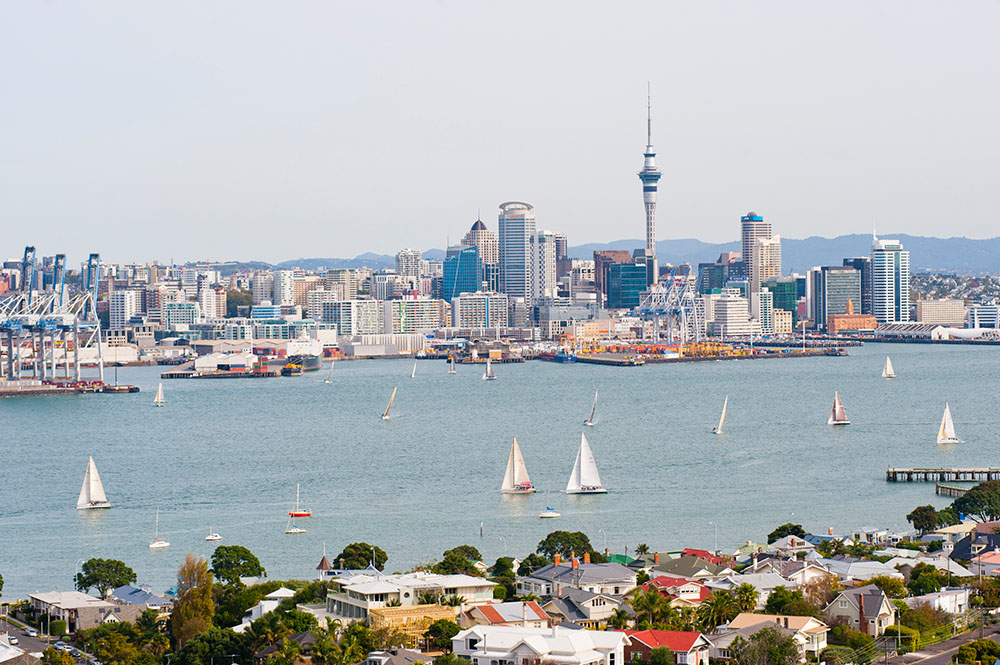Top 5 Tips to Choose the Right University in New Zealand
You have heard all about how New Zealand has become one of the most popular study destinations for Malaysian students, highlighting reasons such as:
- High–quality education
- A welcoming environment
- One of the world’s most beautiful cities
But here’s the big question: where should you choose and which university?
Choosing a university is a big decision and can be daunting. It plays a significant role in shaping the future of your academic and career path.
Thankfully, there are only eight public universities in New Zealand, making choosing one that suits you easier.
Each university has a wide range of available courses; here are our top five tips for choosing the right university in New Zealand.

1. Identify your Academic Goals
Before delving into university alternatives, determine your academic and career goals.
Are you seeking a particular curriculum, or do you desire a comprehensive education?
Understanding your passion will guide your search whether you’re drawn to sciences, humanities, or vocational training.
When evaluating the programme content at New Zealand universities, it is crucial to look into the following aspects:
Course structure and specialisation
Browse the programme’s core and elective courses, pathways, and interdisciplinary options. New Zealand universities provide flexible course structures that allow students to tailor their studies.
Teaching methods and assessment approach
Studying in New Zealand gives you a wide range of hands-on, collaborative and project-based learning opportunities, delivered through:
- Seminars
- Lectures
- Tutorials
Assessment includes coursework, presentations, projects, research papers and examinations.
Industry connections and internships
Many universities collaborate with businesses and organisations to provide interns with real-world insights and theoretical applications. Certain universities have partnerships with leading companies in areas such as:
- Technology
- Engineering
- Finance
- Healthcare
Participating in such internships may help you further your career by providing hands-on experience and allowing you to network with professionals. Proving your ability could boost your chances of obtaining full-time work after graduation.

2. Location and Campus Life
Campus environments in New Zealand range from peaceful rural settings to busy metropolitan ones. When choosing the right university, consider the location that best suits your lifestyle and needs.
Consider what weather suits you best— the average temperature in New Zealand ranges from 10℃ in the south to 16℃ in the north.
Here are locations in New Zealand that you should take note when selecting your university:
| Location | Things to take note |
| Auckland | > Largest city in New Zealand > Urban lifestyle with strong Job prospects > Boast a diverse culture with easy access to international travellers > Living costs can be higher |
| Wellington | > ‘The Coolest Little Capital’ by Lone Planet > Known for its creative culture, green hills and sparkling harbour > Suitable for explorers |
| Christchurch | > Known as the Garden City > Many parks and green spaces for outdoor activities > Home to world-class universities > Newest city with a thriving tech sector > Rental is more affordable |
| Palmerston North | > Smaller city with a lively student community > Home to Massey University > More affordable living options compared to larger cities > Suited for students seeking New Zealand as it packs with rural charm |
| Dunedin | > Known for its historical architecture and vibrant arts scene. > Lower living cost > Home to The University of Otago – The oldest university in New Zealand and the only proper residential university. |

3. Costs and Financial Support
Another crucial factor to consider when deciding on the right university is tuition fees and living costs. International students’ tuition fees generally range between NZD35,000 and NZD45,000 per year.
All universities offer international student scholarships, varying between NZD3,000 to NZD50,000.
Living costs differ depending on where you decide to live and your lifestyle. On average, you can expect to spend a minimum of NZD20,000 yearly on food, accommodation, transport, and other essentials.
Accommodation can be more costly in bigger cities like Auckland and Wellington than in smaller cities like Dunedin and Palmerston North.

4. Student Experience
Beyond learning, the experiences you hope to seek from your time at the university will also have a bearing on your chosen university.
The student clubs, societies, and extracurricular activities offered by each university can differ, and there are those unique to each university.
Joining clubs and societies at university can offer a wealth of valuable experiences, including:
- Networking: Meet new people, including peers, faculty, and professionals in your field.
- Skill Development: Enhance skills such as leadership, teamwork, communication, and time management.
- Practical Experience: Gain hands-on experience related to your field of study through projects, events, or competitions.
- Cultural Exposure: Engage with diverse perspectives and cultures, broadening your worldview.
- Resume Building: Strengthen your resume with extracurricular involvement, showing commitment and initiative.
- Personal Growth: Build confidence and discover new interests or passions outside your academic pursuits.
- Social Connections: Create lasting friendships and community within the university.
- Event Planning: Learn to organise and execute events, honing your planning and problem-solving skills.
- Mentorship Opportunities: Find mentors who can guide and support your academic and career goals.
- Fun and Relaxation: Enjoy a break from academics and engage in activities that bring joy and fulfilment.
Participating in clubs and societies can enrich your university experience, contributing to personal and professional development.

5. Future Prospects
What prospects the university can offer regarding career and future study pathways is just as important when deciding on the university you will attend. Here are some things to consider such as:
- Career support services
- Internships
- Job placement rates
- Job opportunities
New Zealand universities are well connected with the local industries and global networks, which can help boost your career path. Many universities provide career support services such as:
- Workshops for CV writing
- Interview Preparation
- Career advice
- Internship programmes
If you want to further your studies after your undergraduate programme, New Zealand offers many postgraduate study options, from a master’s degree to PhD, which will best equip you for the future.
If you wish to stay on and work, New Zealand has one of the most generous post-study work visas for which you can apply.

Need Help Choosing the Right University in New Zealand?
Contact us now, and our experts will help you find the university programmes that match your interests and needs. They are also there to advise you on eligible scholarships.
Your New Zealand adventure could be just around the corner!
